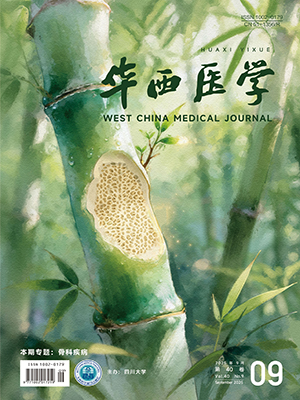| 1. |
李睿哲, 孙立飞, 陈小龙, 等. 医学生学术型社团建设与管理的思考. 华西医学, 2018, 33(9): 1191-1194.
|
| 2. |
常永丽, 郭晓姝, 韩玲娜, 等. 社团活动在医学生科研能力培养中的作用. 中国高等医学教育, 2017(10): 57-58.
|
| 3. |
张晓报, 蒋雨君. 我国高校跨学科人才培养的学科组织困境及其消解对策. 高等理科教育, 2024(5): 65-70.
|
| 4. |
陈勇, 涂春香, 余文珍, 等. 培养医学本科生科研创新能力的实践与探索. 卫生职业教育, 2025, 43(6): 5-8.
|
| 5. |
邹沅, 蒋元元, 王镜媛, 等. 医学专业本科生参与科研教育的现状探讨. 中国医学教育技术, 2025, 39(1): 117-121.
|
| 6. |
杨晓辉, 李小毛, 张宇, 等. “双一流”背景下高年级本科医学生科研能力现况调查及分析. 中国高等医学教育, 2024(8): 10-12.
|
| 7. |
Huang Q, Yue Z, Lin J, et al. The effect and influence of undergraduate research on medical undergraduates in China. Biochem Mol Biol Educ, 2019, 47(1): 41-50.
|
| 8. |
修双玲, 付俊玲, 孙丽娜, 等. 临床医学专业本科生科研创新能力的培养. 医学教育管理, 2023, 9(1): 33-37.
|
| 9. |
张岩冲, 商希礼, 贾冬梅. 融合大学生学术型社团模式的新型本科生导师制探讨. 广东化工, 2019, 46(11): 249, 224.
|
| 10. |
Kinkel DH, Henke SE. Impact of undergraduate research on academic performance, educational planning, and career development. J Nat Resour Life Sci Educ, 2006, 35(1): 194-201.
|
| 11. |
张冬生, 封益飞, 王晓伟, 等. 自主选题联合递进式学习法在医学本科生科研教学中的应用. 中国医药科学, 2024, 14(18): 46-49.
|
| 12. |
Boersma S, Hluchy M, Godshalk G, et al. Student-designed, interdisciplinary science projects: placing students in the role of teacher. J Coll Sci Teach, 2001, 30(6): 397-402.
|
| 13. |
陈小龙, 李玥, 彭柏强, 等. 学术型社团在医学生科研实践能力培养中的应用——以四川大学华西胃癌外科志愿者团队为例. 四川大学学报(医学版), 2021, 52(6): 943-947.
|
| 14. |
马义梅, 陆晓茜, 郭霞, 等. 本科生导师制度对临床医学专业学生科研能力的影响. 中国继续医学教育, 2024, 16(10): 112-116.
|
| 15. |
赵斌, 张青青, 王玉涛, 等. 本科生导师制对医学生科研能力的培养现状及分析. 继续医学教育, 2023, 37(9): 93-96.
|
| 16. |
黄陈, 张原, 张人超, 等. 基于项目驱动的医学创新人才科研潜质培养的实践与探索. 中华全科医学, 2024, 22(2): 175-178.
|
| 17. |
潘运宝, 母雯婷, 毛哲, 等. 基于大学生创新创业训练计划项目实践探讨实验诊断学教学改革思路. 医学新知, 2024, 34(12): 1430-1440.
|




